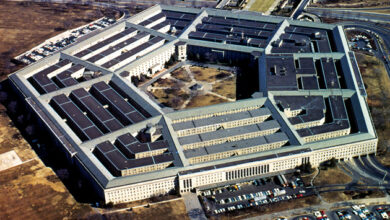
By Ologeh Joseph Chibu
A recent report from the World Bank has shed light on Nigeria’s insufficient public expenditure on education and health, indicating significant shortcomings compared to international standards.
Titled ‘Human Capital Public Expenditure and Institutional Review,’ the report examines the financial and governance challenges affecting the delivery of basic education and primary healthcare in Nigeria. According to the findings obtained on Wednesday, Nigeria’s overall public spending on these crucial sectors accounts for only 12% of its Gross Domestic Product (GDP), falling below the thresholds required to adequately support essential public services.
“This compares to the Sub-Saharan African average of 17.2 per cent and the lower middle-income countries average of 18.5 per cent of GDP spent on public services,” the report noted. ” Over the past five years, Nigeria’s health and education expenditure has fluctuated between 10 and 12 per cent of GDP,” indicating a persistent inadequacy in funding.
The report highlighted that per capita spending on education stands at $23, with states contributing $14 and the federal government covering the remainder. Similarly, health expenditure per capita is $15, with states contributing $8.5, reflecting significant disparities and deficiencies in funding compared to regional peers.
The World Bank attributed these low spending levels to Nigeria’s constrained overall public revenue, leading to limited allocations for education and health within the national budget. In 2021, education accounted for 10.1% and health 6.6% of total federal and state spending, significantly less than allocations for general public services and economic affairs.
“Despite states allocating more funds than the federal government to primary health and basic education, overall investment remains insufficient,” the report emphasized. “Improving budget execution rates and increasing allocations at both federal and state levels will be crucial in adequately financing health and education services in the medium to long term.”
Reacting to the report, Prof. Tanimola Akande, a Public Health Professor and former National Chairman of the Association of Public Health Physicians of Nigeria, underscored Nigeria’s lag in health funding compared to international benchmarks. He highlighted the country’s heavy reliance on donor support for health programs and called for enhanced political will, transparency, and accountability in health sector financing.
“Nigeria must prioritize robust funding for health, improve national and state health insurance schemes, and enhance efficiency in expenditure to achieve better health outcomes,” Prof. Akande stressed. “Political commitment and prudent resource management are essential to addressing infrastructure deficiencies and delivering quality healthcare services nationwide.”
The report’s findings underscore the urgent need for Nigeria to bolster its financial commitments to education and health, ensuring sustainable development and improved public welfare across the country.



